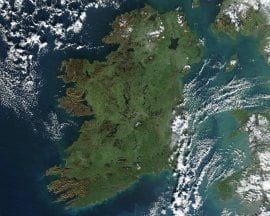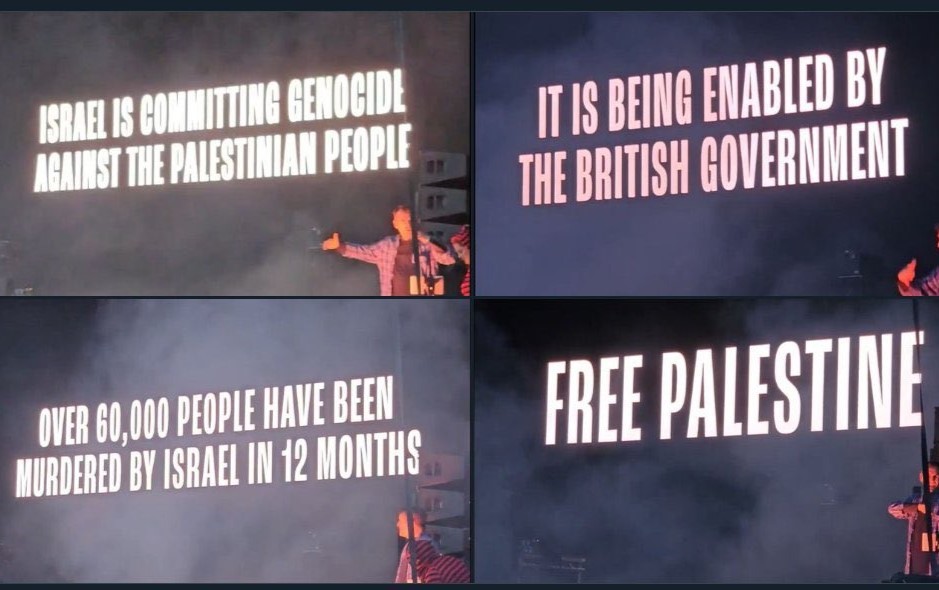The question of the border and the national question in the North have played an enormous role in the history of Ireland. As such the question of a border poll is of great importance. Fightback – the Marxist tendency in Ireland – examine the national question in Ireland and put forward the socialist alternative.
The question of the border and the national question in the North have played an enormous role in the history of Ireland. As such the question of a border poll is of great importance. Not least as it is some 40 years ago since the last poll of this character was conducted. The result in 1973 was overwhelmingly against a United Ireland, but as Catholic voters boycotted the poll the reality is that the result was a foregone conclusion.
Demographic changes recorded in the 2011 census indicate that the previous majority in the North has disappeared with only 48% identifying as protestant, while 45% identify as catholic. The DUP recently announced that they would support a poll in the North, although it is evident that this is no change of heart, rather the unionist equivalent of “Bring it on.” Their confidence is based on the recent BBC poll which indicated that 67% of voters in the North would vote to stay within the UK. The same poll reports that only 35% of catholics would vote for a united Ireland.
91 years after partition, which James Connolly had predicted in advance would result in a “carnival of reaction” and 15 years after the signing of the Good Friday Agreement the sectarian divide is as pronounced as ever. Underpinning the sectarian impasse is the current economic crisis which has only accentuated the long term economic decline in the North. The weakness of capitalism in the North means that the public sector has a huge importance in the economy and yet Sinn Féin and the DUP are presiding over draconian cuts.
Fifteen years on from the GFA the so called peace dividend has proven worthless and the protestant working class, which had a relatively privileged position in terms of skilled jobs in industry, has seen this position eroded away. For the protestant bourgeoisie the “fleg” protests and prospect of forcing a vote that confirms the status quo are merely two sides of the same coin; cynical attempts to preserve their sectarian base and to consolidate their political influence over the protestant working class.
The adaption to power sharing with SF has had a serious impact on the protestant bourgeoisie. The Ulster Unionist Party in particular has been shattered. Politically, Unionism is now more divided than ever, as witnessed by the recent McCrea – McCallister split from the UUP over the joint DUP/UUP candidate in the Mid Ulster parliamentary election; while the recent flag protests have highlighted the loyalist movements with which the DUP are in competition for influence among the protestant community
Ultimately also, the decision to allow a poll lies with the British Secretary of State. The only circumstance that such a poll would be allowed would be in the full confidence that it would result in a vote for a united Ireland. Significantly the catholic middle class is equivocal over the question. Many of them are well integrated into the state structures in the North and support the status quo. As the BBC poll suggests it is most likely that a poll held now would be heavily defeated. The SF leadership are aware of that. As such the call for a Border Poll is designed to demonstrate to their base that they are still after a United Ireland.
In the meanwhile however, Sinn Féin are under pressure. While they may hold sway at Stormont alongside the DUP it is evident that there is increasing dissatisfaction with the rate of progress in the North. This reflects the fact that working class catholics have not seen any marked progress in their lives after the signing of the Good Friday Agreement. It is clear also that they are conscious of the opposition that exists within the Republican movement and they are watching their backs. After decades of armed struggle and more recently of political strategy it is evident that SF are no closer to a 32 County United Ireland . Instead the SF leadership at Stormont are locked into a deadlocked sectarian structure.
Alan Woods of the International Marxist Tendency writing in the book Republicanism and Revolution makes the following points:
“The only cause worth fighting for is the struggle for the emancipation of the working class. In turn, the working class must inscribe on its banner the fight against all forms of oppression, including national oppression. “The border must be abolished!” Yes, of course! But the question is how? The old methods have failed to do this. It can only be achieved as a by-product of the socialist revolution. The question of the border can only be solved by the working class North and South conquering political power. Then it will be swept aside, as a man sweeps aside an irritating insect. The border question can only be solved by the working class as a by-product of the socialist revolution. That is the lesson of the last hundred years of the national liberation struggle in Ireland and particularly the last thirty years.”
Ireland: Republicanism and Revolution (2003)
The North cannot be seen solely as a self contained entity. The capitalist economic and political crisis won’t stop at the border; that is self evident. Although the crisis hit first in the South it is clear that the North is in a serious economic mess. The North is part and parcel of the world market, but it is also part of the class struggle on a world scale, as witnessed by the mass public sector strikes, especially the Health and Education strike of October 5th and the Pensions strike on November 30th both in 2011 and again in May 2012 when Nipsa, Unite, the PCS and the UCU took action again over pensions. At the present moment a major struggle is brewing in the South over the Croke Park 2 Deal, while in Britain the TUC voted to investigate the possibility of a general strike at its Annual Congress. Greece, Spain, Portugal and Italy are all very unstable and now there is the threat of a further recession, a triple dip in the long crisis since 2008.
While there may be little chance of a united Ireland on the basis of capitalism; that is not the end of the story. Ultimately the only majority in the North is the working class. There are many examples of united workers struggles in the North. But it is a mistake to think that unity between protestant and catholic workers can be won by simply dwelling on economic demands and by burying the national question. On the contrary, the key to the abolition of the border lies in the revolutionary struggle of the working class on both sides of the border and internationally. Genuine workers unity will be forged on the basis of the experience of the class struggle.
As Connolly explained:
“An Irish Republic, the only purely political change in Ireland worth crossing the street for, will never be realised except by a revolutionary party that proceeds upon the premise that the capitalist and the landlord classes in town and country in Ireland are criminal accomplices with the British government, in the enslavement and subjection of the nation. Such a revolutionary party must be socialist, and from socialism alone can the salvation of Ireland come.” (James Connolly, The Harp, March 1909)
The contradictions of capitalism on a world scale mean that it is quite possible that further revolutionary movements will emerge. The situations developing in Greece in particular, but also in Spain and Portugal, not to mention Egypt demonstrate the scale of the problem for capitalism. As in 1917 it is entirely possible that over the next few years that the chains of capitalism will break at their weakest link. The struggle for socialism in Ireland cannot be separated from the struggle for socialism in Europe and Internationally. Likewise the struggle for a united Ireland cannot be separated from the struggle for socialism. That is why we call for a 32 County Socialist United Ireland, linked in a voluntary federation to a Socialist Britain and a Socialist Europe.






